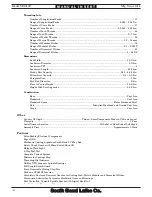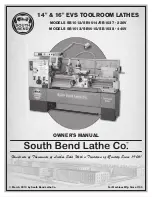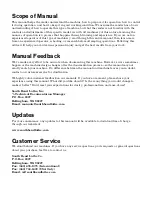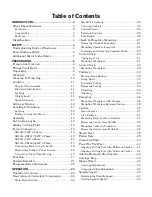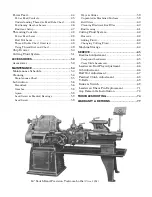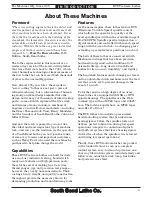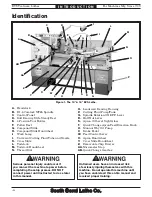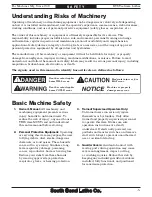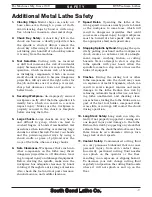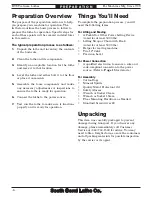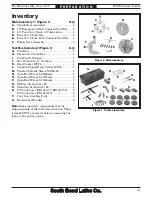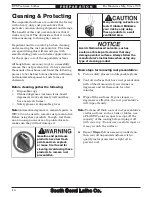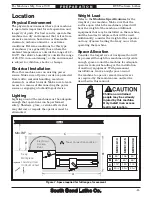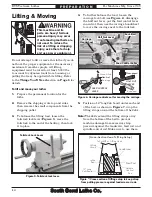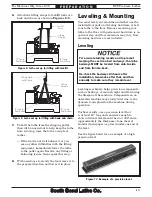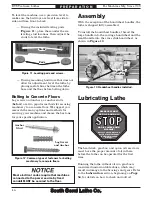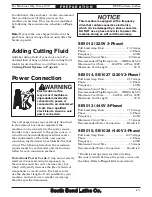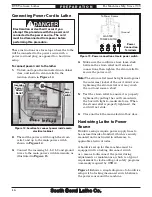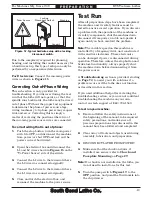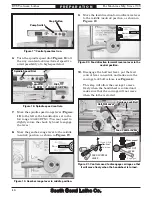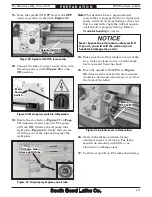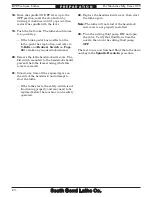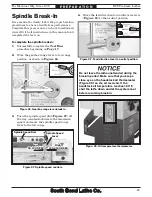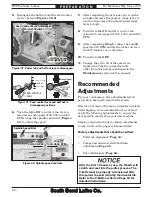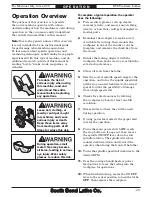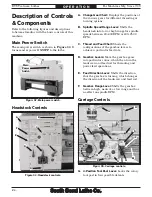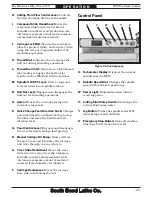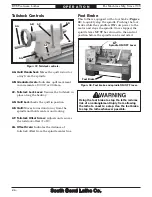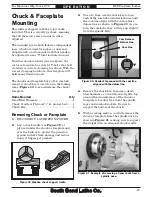
-12-
For Machines Mfg. Since 7/09
EVS Toolroom Lathes
P R E P A R A T I O N
Lifting & Moving
Do not attempt to lift or move this lathe if you do
not have the proper equipment or the necessary
assistance from other people. All lifting
equipment must be rated to at least 5,000 lbs.
to account for dynamic loads from bouncing or
pulling that may be applied while lifting. Refer
to the
Things You'll Need
section on
Page 8
for
details.
To lift and move your lathe:
1.
Prepare the permanent location for the
lathe.
2.
Remove the shipping crate top and sides,
then remove the small components from the
shipping pallet.
3.
To balance the lifting load, loosen the
tailstock lock lever (
Figure 5
), move the
tailstock to the end of the bedway, then lock
it in place.
This machine and its
parts are heavy! Serious
personal injury may occur
if safe moving methods are
not used. To reduce the
risk of a lifting or dropping
injury, ask others for help
and use power equipment.
4.
To further balance the load, loosen the
carriage lock bolt (see
Figure 6
), disengage
the half nut lever, put the feed control lever
in neutral, then use the carriage handwheel
to move the carriage next to the tailstock.
Figure 5. Tailstock lock lever.
Tailstock Lock Lever
5.
Position a 12" long 2x6 board under each end
of the bed, as shown in
Figure 7
, wrap the
lifting straps around the bottom of the 2x6's.
Note:
The 2x6's extend the lifting straps away
from the bottom of the bed to prevent
machine damage from excessive strap
pressure against the leadscrew, feed rod, and
spindle control rod. Make sure to use them.
12" Long
2x6 Board
Lifting
Strap
Lathe
Bed
Leadscrew
Feed Rod
Spindle
Control
Rod
To Forklift or Lifting Hook
(Cross-Section View of Lifting Setup)
Figure 7. Cross section of lifting setup to keep strap
from putting pressure against leadscrew or rods.
Figure 6. Carriage controls set for moving the carriage.
Lock Bolt
Engaged
HALF NUT
LEVER
Disengaged
Cross Slide
Neutral
FEED CONTROL
LEVER
Carriage
Feed Control Lever
Half Nut Lever
Carriage
Handwheel

